 April 2024 in “European Journal of Dermatology”
April 2024 in “European Journal of Dermatology” The 2940-nm Er: YAG fractional laser may help treat receding frontal hairlines in men with androgenetic alopecia.
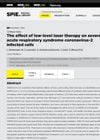
Low-level laser therapy may help uninfected cells but has different effects on coronavirus-infected cells.
[object Object]  February 2024 in “Journal of Cosmetic Dermatology”
February 2024 in “Journal of Cosmetic Dermatology” White hair patch repigmented and hair regrew in a balding patient after treatment with exosomes and laser.
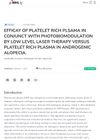
Combining PRP with low-level laser therapy is better for hair growth than PRP alone.
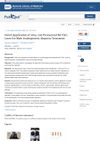
A new laser treatment may help regrow hair in men with pattern baldness and has minimal side effects.
 November 2023 in “Journal of cosmetic dermatology”
November 2023 in “Journal of cosmetic dermatology” The 595-nm pulsed dye laser effectively reduces symptoms of EFFC with minimal side effects.
 November 2023 in “Journal of medical and health studies”
November 2023 in “Journal of medical and health studies” Combining low-level laser therapy with scalp microneedling and a clobetasol solution significantly improves androgenetic alopecia.

The new skin cream with zinc oxide nanoparticles is stable, spreads well, and doesn't deeply penetrate the skin.
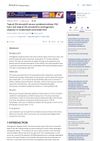 August 2023 in “Journal of Cosmetic Dermatology”
August 2023 in “Journal of Cosmetic Dermatology” Using a laser with minoxidil was more effective for hair loss than minoxidil alone.
Non-ablative Er:YAG-laser treatment helps improve life quality for menopausal women with hair loss.
 May 2023 in “Photobiomodulation, photomedicine, and laser surgery”
May 2023 in “Photobiomodulation, photomedicine, and laser surgery” The 675 nm laser treatment significantly increased hair density and reduced symptoms of androgenetic alopecia in both men and women, with no side effects.
March 2023 in “Clinical Cosmetic and Investigational Dermatology” Microneedling and fractional CO2 laser are compared as methods for delivering stem cell secretomes for skin rejuvenation.
 April 2022 in “Research Square (Research Square)”
April 2022 in “Research Square (Research Square)” The combination of laser and topical steroids is more effective for treating alopecia areata than topical steroids alone.
 November 2021 in “Research Square (Research Square)”
November 2021 in “Research Square (Research Square)” A 532 nm laser at 15 J/cm2 speeds up tendon healing by increasing tendon stem cell growth and tendon-related gene activity.
 October 2021 in “Research Square (Research Square)”
October 2021 in “Research Square (Research Square)” A 532 nm laser helps tendon stem cells grow and become tendon-like by increasing Nr4a1 activity, which may speed up tendon repair.
August 2021 in “Journal of advances in medicine and medical research” Excimer light therapy is more effective than low level laser therapy for treating alopecia areata.
 March 2020 in “Faculty Opinions – Post-Publication Peer Review of the Biomedical Literature”
March 2020 in “Faculty Opinions – Post-Publication Peer Review of the Biomedical Literature” Combining nonablative fractional laser with minoxidil was effective for alopecia areata with only one patient relapsing after a year.
 January 2020 in “Acta Scientiae Veterinariae”
January 2020 in “Acta Scientiae Veterinariae” A dog's chronic bite wound healed successfully using a mix of herbal gel, low power laser, and ozone therapy.

The 1550 nm fractional Er:Glass laser improved hair regrowth in patients with androgenic alopecia, but didn't significantly change collagen type I, skin fibroblasts, or macrophages. More research is needed for optimal results.
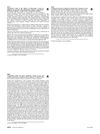 May 2017 in “Journal of The American Academy of Dermatology”
May 2017 in “Journal of The American Academy of Dermatology” Combining microneedling with Q-switched laser treatment for tattoo removal did not improve results and caused more pain.
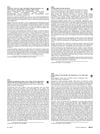 May 2017 in “Journal of The American Academy of Dermatology”
May 2017 in “Journal of The American Academy of Dermatology” 595 nm pulsed dye laser is a cost-effective treatment for nonmelanoma skin cancer with a low recurrence rate.
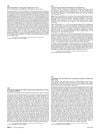 May 2015 in “Journal of The American Academy of Dermatology”
May 2015 in “Journal of The American Academy of Dermatology” The Nd:YAG laser is a successful and safe way to treat ingrown and pincer nails.

Low level laser or LED therapy combined with infiltrations may help hair growth.
Low level laser therapy effectively treats alopecia areata on the scalp.
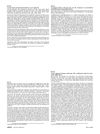 February 2009 in “Journal of The American Academy of Dermatology”
February 2009 in “Journal of The American Academy of Dermatology” Fractional infrared technology is effective and safe for treating cervical laxity.
[object Object] 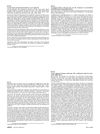 February 2009 in “Journal of The American Academy of Dermatology”
February 2009 in “Journal of The American Academy of Dermatology” Pulsed dye laser treatment was effective for a skin condition resistant to other treatments.
 January 2009 in “Elsevier eBooks”
January 2009 in “Elsevier eBooks” Low level laser therapy may help with hair loss.
 June 2001 in “Proceedings of SPIE”
June 2001 in “Proceedings of SPIE” Low energy laser therapy effectively treats certain skin conditions and improves recovery time without side effects.
September 1998 in “Journal of the European Academy of Dermatology and Venereology”























